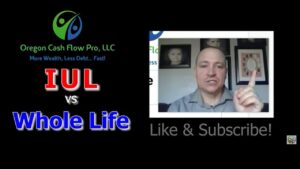Indexed Universal Life Insurance Vs Whole Life Insurance
Indexed Universal Life Insurance
When it comes to choosing between Indexed Universal Life insurance and whole life insurance, the two most common policies have very similar characteristics. Both of these products provide a guaranteed fixed return and allow investors to participate in the market’s ups and downs, but the main difference between them is the level of investment risk. Some people are interested in accumulating cash value to leave to their family members after they die, while others are interested in providing an income for themselves. Regardless of your situation, both types of policies can be suitable for your needs.
While both types of insurance offer different advantages, both policies are relatively simple. Term life insurance is the simplest, and usually requires only a small monthly premium, while whole life insurance policies tend to be more complex and involve a large amount of research. If you are looking for permanent coverage, index universal life insurance may be the way to go. If you’re only looking for a short-term plan, term is probably a better choice.
indexed universal life insurance is a type of permanent life insurance. The money you deposit in your policy grows with an index, which is typically a stock or bond index. Each insurer has its own list of indices, and some allow you to choose more than one. The simplest indexes are the S&P 500 and Russell 2000. There are many more esoteric indexes, such as the NASDAQ 100 or the Russell 2000.

Indexed Universal Life Insurance Vs Whole Life Insurance
One significant advantage of IUL is the guarantee of a minimum rate of interest. This guarantees a guaranteed minimum interest rate, which is dependent on an index chosen by the insurer. The index can be anything from the S&P 500 to the Nasdaq 100. The insurance company doesn’t invest directly in the market. So while the guarantee of the death benefit in IUL policies may seem attractive, it’s important to consider your financial goals and other assets in your portfolio before committing to an IUL policy.
The major difference between IUL and whole life insurance is their cost and risk tolerance. While index universal life insurance is less expensive than a traditional whole life policy, the latter has greater benefits. The cash value component of IUL has a lower risk than a term policy, but the death benefit is guaranteed. The difference in price is largely due to the higher premiums. This is because indexed universal policies are more expensive than whole ones. They are also more flexible.
In general, the benefits of IUL are lower in cost. However, if you have a fixed income, IULs will earn you higher returns over time. The risk of indexing is reduced in both cases. A whole life insurance policy will pay out a cash value that is higher than the index of a particular mutual fund. This means that it is lower than an index-based insurance.